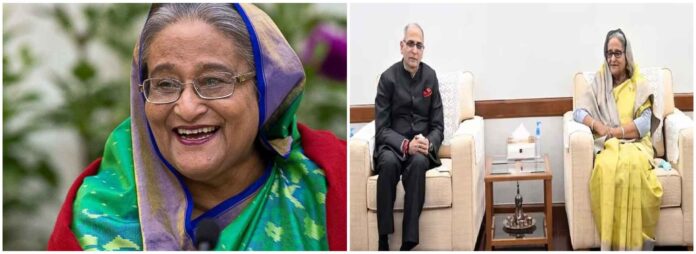Indian Foreign Secretary Vinay Mohan Kwatra held a detailed meeting with Bangladesh’s Prime Minister, Sheikh Hasina. The discussion primarily centered on bolstering bilateral ties between the two neighboring nations, focusing on key areas of cooperation and mutual interest. This dialogue is part of a broader effort by both countries to enhance their strategic and diplomatic engagements, reflecting their shared priorities and challenges in the region.
Economic Cooperation and Trade Enhancement
One of the main focuses of Kwatra’s discussions with Sheikh Hasina was enhancing economic ties. India and Bangladesh share a robust trading relationship that has been the backbone of their bilateral engagement. The two countries have been working on various fronts to increase trade volumes and reduce barriers. Efforts are being made to improve logistical connectivity through upgrades in border infrastructure, which is expected to facilitate smoother trade and transit operations. These initiatives are likely to boost economic growth in both countries, with a particular emphasis on northeastern India and adjacent Bangladeshi regions.
Security and Defense Collaboration
Security issues were also a crucial part of the agenda. India and Bangladesh have been cooperating on various security-related issues, including counter-terrorism and defense collaborations. Both nations are keen on enhancing security measures along their borders to prevent illegal activities such as smuggling and human trafficking. Additionally, they are exploring possibilities to increase defense cooperation through joint exercises, training programs, and intelligence sharing, aiming to ensure regional stability and security.
Cultural and Educational Exchanges
Cultural exchange is another area where Kwatra and Hasina sought to deepen ties. Both leaders discussed initiatives to promote cultural understanding and mutual respect through exchanges involving artists, academics, and students. These cultural interactions not only strengthen people-to-people connections but also build a foundation for enduring diplomacy. Educational ties are also being enhanced, with scholarships and academic collaborations that offer opportunities for Bangladeshi students in Indian universities, and vice versa.
Environmental and Energy Cooperation
Given the challenges posed by climate change, environmental cooperation is increasingly becoming a priority. India and Bangladesh are vulnerable to climate impacts, particularly in areas such as the Sundarbans, which both countries share. Discussions included collaborative projects for environmental conservation and combating the adverse effects of climate change. Furthermore, energy cooperation, particularly in renewable energy, was highlighted as a critical area for development, with both nations aiming to reduce their reliance on fossil fuels.
Humanitarian Issues and Regional Stability
Humanitarian issues, including the situation concerning the Rohingya refugees, were also discussed. Both India and Bangladesh are looking for sustainable solutions to this crisis, with India supporting Bangladesh in providing aid and seeking a long-term resolution with Myanmar. The leaders reaffirmed their commitment to regional stability and peace, which is crucial for economic development and social harmony.
Conclusion
The meeting between Foreign Secretary Kwatra and Prime Minister Hasina marks a significant step in reinforcing the multi-dimensional relationship between India and Bangladesh. By focusing on key areas such as economic trade, security, cultural exchanges, environmental cooperation, and humanitarian issues, both nations are paving the way for a strengthened partnership. This collaboration not only benefits the two countries but also contributes to the stability and prosperity of the South Asian region. As these discussions translate into concrete actions, the dynamic between India and Bangladesh is expected to serve as a model of cooperative regionalism in South Asia.
